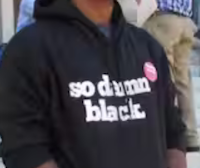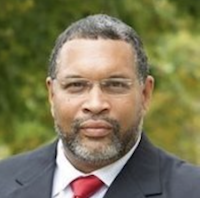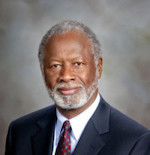An exterior view of FirstEnergy Stadium in Cleveland, Ohio. Professional sports stadiums like this may wind up adding sports books under a proposal from Ohio lawmakers. (Photo | Jason Miller/Getty Images).
On Sept. 23, 2020, McKenzie K. Davis, a lobbyist with the Success Group, registered to lobby the administration of Ohio Gov. Mike DeWine on “covid response.”
The timing is curious because only six weeks earlier, federal authorities announced they’d arrested then-Speaker Larry Householder and four associates in what they said was “likely the largest bribery and money-laundering scheme ever in the state of Ohio.” Also implicated in the corrupt scheme was the company on whose behalf Davis had registered to lobby: Akron-based FirstEnergy.
Davis’s ties to the bribery scheme, as first reported by the Energy and Policy Institute, run deeper than that. In 2019, he served on the board of Partners for Progress, a 501(c)(4) “dark money” group that federal prosecutors say funneled tens of millions of FirstEnergy dollars into the corrupt effort to make Householder speaker and pass a $1.3 billion package while McKenzie served on the money group’s board.
The law, signed by DeWine, propped up two aging nuclear plants, as well as two 66-year-old coal plants — including one that isn’t even in Ohio. And in this time of dire climate news, it gutted standards for energy efficiency and renewables.
Householder has been removed as speaker and expelled from the House, two of his associates have pleaded guilty and a third has died by suicide. A separate dark-money group, Generation Now, has also pleaded guilty.
FirstEnergy last month entered into a deferred-prosecution agreement with federal prosecutors in which it admitted to its role in the scandal and agreed to pay the state $230 million.
It also admitted paying $4.3 million to Sam Randazzo just before DeWine appointed him to be the state’s top utility regulator. Randazzo proceeded to do favors for the utility that were worth at least hundreds of millions, the agreement said.
DeWine won’t say he regrets appointing Randazzo and Randazzo — who hasn’t been charged — denies wrongdoing.
But Attorney General Dave Yost, a Republican like DeWine, last week added Randazzo and former FirstEnergy executives as defendants in a racketeering suit against FirstEnergy, calling the company’s payment to Randazzo a “bribe.” Then on Friday, Yost moved to freeze Randazzo’s assets, saying Randazzo this year transferred a $500,000 property to his son and sold others worth $4.3 million.
Questions were raised about Partners for Progress, one of the dark money groups involved in the scandal, almost as soon as arrests were announced on Aug. 12, 2020. Two days later, the Cincinnati Enquirer reported that in 2017 Dan McCarthy, then a FirstEnergy lobbyist, founded Partners for Progress. He resigned as its president in early 2019 to become DeWine’s legislative affairs director — a post from which he worked to pass the corrupt bailout measure, the deferred prosecution agreement says.
Even so, McCarthy continues in his position and he continues to have DeWine’s support.
But in announcing the deferred-prosecution agreement, Acting U.S. Attorney Vipal J. Patel said the entire scandal “would not have been possible” without dark money gushing through Partners for Progress and Generation Now.
“These are supposed to be, according to the (tax) code, social welfare organizations. You all see a lot of social welfare going on? I don’t,” Patel said, adding, “What about these names? Partners for Progress? What are the partners here? The conspirators? What’s the progress? Passage of (the energy bailout) through bribery?”
So what was Partners for Progress Director and FirstEnergy lobbyist Davis asking DeWine for last September as the company was in the throes of a corruption scandal and Ohio was in the throes of a pandemic?
A call to Davis’s firm, the Success Group, was unreturned.
The Energy and Policy Institute noted that was right around the time that FirstEnergy resumed disconnections even though many Ohioans were out of work due to the pandemic.
But FirstEnergy, which has fired the top executives involved in the bailout scandal, said it wasn’t asking DeWine for assistance in cutting off people’s power as cold weather neared.
“As an essential business that provides electric service to two million customers in Ohio, FirstEnergy lobbying efforts were not specific to any one COVID topic, but rather helped keep the company engaged as we worked to understand the rapidly changing landscape driven by the pandemic,” spokeswoman Jennifer Young said in an email.
“Conversations with the governor’s office occurred on a wide variety of vitally important pandemic-related issues, including COVID testing for employees, acquiring personal protective equipment, establishing safe work practices to protect employees and the public while keeping the lights on, and payment assistance initiatives for those struggling to pay their utility bills, among others,” she said.
• • •• • •
This story is provided by Ohio Capital Journal, a part of States Newsroom, a national 501 (c)(3) nonprofit. See the original story here.














